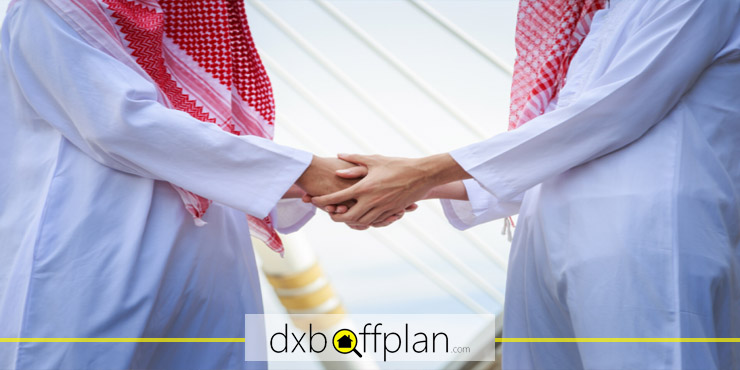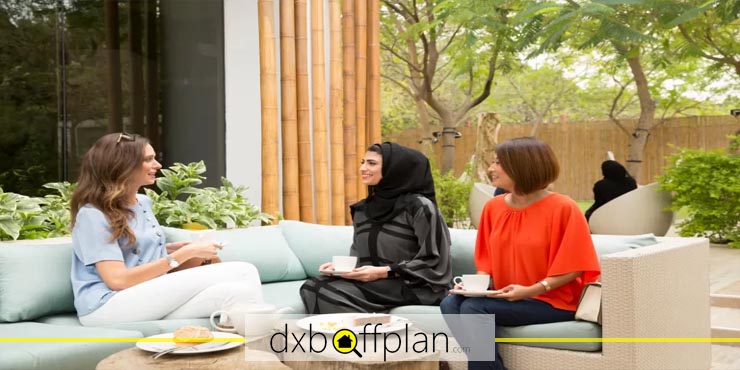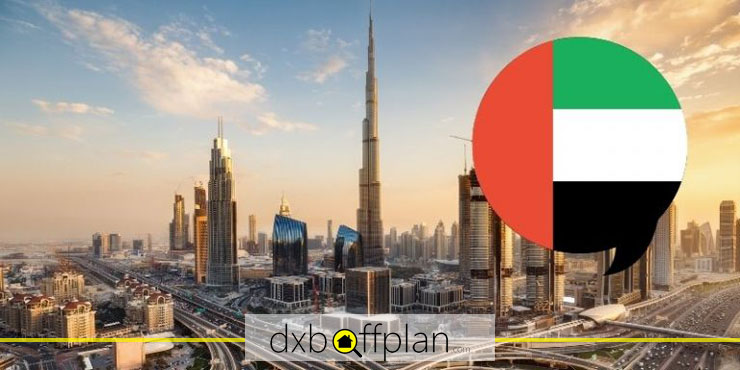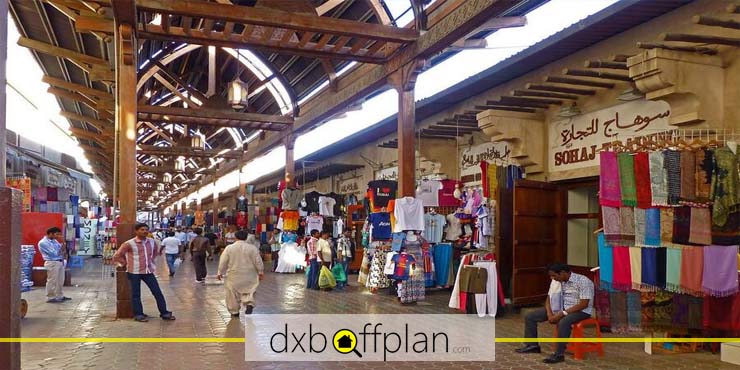Basic Arabic Words and Phrases Useful in Dubai
In Dubai, most people speak English, but knowing a few Arabic words and phrases can be very helpful. Whether you have a Dubai work visa and permit or are attending the best schools in Dubai, knowing the local language to some degree may be helpful. Speaking a person’s native tongue opens up a friendlier and more pleasant conversation. It also establishes a connection and shows respect for the local culture. Additionally, being able to communicate in the native language may help you to get access to more resources.
You can get around by speaking only English, but there are many basic Arabic words and phrases you must learn in Dubai for daily conversation.
How Often Can You Apply Basic Arabic Words and Phrases in Dubai
You probably won’t be required to understand or speak Arabic if you plan to go to Dubai. The local Emiratis will obviously talk in their mother tongue for communication, but you will rarely need to speak Arabic and interact with the locals in daily life. Some may even understand and speak English better than English natives.
English is regarded as the ‘second’ official language of Dubai due to the fact that there are over two hundred nationalities residing in Dubai homes next to each other in the city. Road signs are written in English, and waiters, shop staff, and officials in the city speak English.
Surprisingly, you might be able to speak Russian, Hindi, Urdu, or Filipino Tagalog more than the Gulf Arabic language. The majority of expats use their native language with a few Arabic terms at times.
Basic Arabic Words and Phrases You Must Learn in Dubai: The Gulf Arabic
The majority of people who live or travel to Dubai speak some English. Dubai’s public documents and street signs are mostly in English. The information in shopping centers, hotels, entertainment complexes, restaurants, sports facilities, and other areas is usually posted in both languages, Arabic and English. In some of the traditional areas of this city, such as Deira, you will hear Farsi, Hindi, and Urdu as well.
There are many Arabic dialects in countries where Arabic is spoken. One pure example is Levantine Arabic – a language spoken in Lebanon and Syria – which tends to sound musical, while Egyptian Arabic has a slang-based dialect, and Arabs located in the Gulf accent a much more guttural accent than classic Arabic.
Persian words are also mixed into the language. Examples of the special features of Gulf Arabic are the pronunciation of “j” as “y” and “k” as “ch.” You will hear it being spoken on the radio or television and while traveling outside Dubai, where it is more used.
Arabic Words and Phrases you should learn in Dubai to Spice up English
Some Arabic words worth noting and generally used are “yalla,” which means “Let’s go!”; “khalas,” which is pronounced “halas,” meaning “done”; and the most used “Insha’Allah,” meaning “If Allah wills it,” which is a courteous reply to anything from “Wanna come over for lunch?” to “Could you repair my car this week?”
It basically means anything from “I have no idea” to “No way, buddy.” The same is true for other Arabic terms like “mafi mushkila,” which translates to “no problem.” If you are told often, you can assume that there is a serious problem!
There are other Arabic terms used in everyday English are “habibi“ (said to a man) and “habibti“ (said to a woman), meaning “my darling.”
Arabs who can speak English may complement their language with “Yanni,” which translates to “you know.” One word that seems to carry a lot of weight is “wasta.” It’s quite difficult to translate, but basically, a person with “wasta” has enough friends and influences in businesses, for instance.
These are some basic Arabic words and phrases you must learn in Dubai:
Basic Courtesy Words and Phrases You Must Learn in Dubai
Below are some Courtesy words and phrases used in Arabic:
- Shukran means “Thank you”: This word is used regularly to denote thanks to someone who has done a favor for you or offered help.
- Marhaba translates to “Hello”: This is a courteous word when Arabs want to meet someone at the airport or whom you meet in your line of work.
- Kaeef Halak means “How are you?”: This is a polite question asked after meeting someone and greeting Marhaba.
- Sabah el Khair means “Good morning”: This phrase is applied when you want to wish a good morning to those you meet. It is actually a regular phrase used, so most people will already know it.
- Massa el Khair means “Good evening”: Good morning and good evening are the basic Arabic phrases that will make your travels more fun. You can learn to wish your friends and business colleagues a good morning and evening even if you don’t know Arabic words.
- Ma iSmaK – “What is your name?”: Make sure you don’t ask this question directly from an Arabic woman. Just remember not to ask anyone’s name directly without saying “please” first.
- TaHiat means “Greetings”: This word can be used to greet people when you happen to meet them.
- iii… meaning “My name is…”: This phrase is one of the most important things to learn because it will let you introduce and tell your name in Arabic.
- Ahlan wa sahlan means “You’re welcome”: You can use this phrase when a person thanks you to show your polite appreciation
Basic Arabic Phrases and Words for Making Requests in Dubai
- MaAzera means “Excuse me”: Say this polite phrase to excuse yourself from a meal, a meeting, or any other incident when you just need a moment.
- MinFadlak means “Please”: You can use this word for requests or when asking for a pause in conversations and discussions.
- Tawaqaf means “Stop”: Use this word together with the word for ‘please’ to show more politeness.
Basic Words and Phrases to Know While Shopping in Dubai
- Naam meaning “Yes”: This word is the same as yes in Arabic to indicate your consent.
- La means “No”: The word means no. Saying yes and no is actually useful when you’re bargaining in souks in Dubai.
- Ayna yomkanany shera? Translates to “Where can I buy…?”: This phrase is very useful for knowing where to buy a thing when heading out to shop.
- Kam at-thaman means “How much?”: This phrase is also useful when shopping in souks in the Middle East.
- Kam et-taklefa translates to “How much is the price?” You’ll also find this phrase very great while shopping.
Handy Words and Phrases to Memorize When Traveling to Dubai
- LaaAref means “I don’t know”: This is an easy word commonly used for denial which you’ll need to say several times a day.
- Hal TaTaKalam alanglizia means “Do you speak English?”: When you meet someone who is speaking Arabic to you, you can say this phrase showing you only know English to understand.
- Kaeef yomKanany El Hosool ala? translating to “How can I travel to..?”: If you’re traveling to Dubai, you will realize the importance of this phrase, especially when you want to locate different places.
- Ayna means “Where is…?”: This is another word used by travelers who want to know the location of a certain place.
- Hal haza howa et-three ela? Its equivalent is “Is this the way to..?”: This phrase can be used for finding a way to your location.
- Annee food, which translates to “I Think I’m lost”: You will find this phrase really practical when you think you’re lost while traveling across the Middle East, such as Dubai.
- Hal howa amen/that means “Is it secure/hazardous?”: This phrase is said if you want to know how dangerous or safe something would be.
- MosaAda translates to “Help!”: A phrase used to call for help, and we wish you wouldn’t need to use such a word when traveling in Dubai.
- aHtaj ela Tabib, which is the equivalent of “I’m in need of a doctor”: This is another very important phrase to know when you want to see a doctor while traveling.
- Hal Ladika Hatef means, “Do you have a phone?”: An important word to know how to ask for a phone, whether you’ve lost or accidentally misplaced it.
- Sayaratee TaAtalat, which translates to “My car has broken down”: If you’re asking for a helping hand when the car breaks down, this Arabic phrase is pretty useful.
- Ayna Al Hamam means “Where is the bathroom?”: This phrase is considered very important to learn no matter where you are in Dubai. You can say this when you are sitting in the best restaurants in Dubai and want to go to the bathroom, for instance.
- Ayna arab Karaj/maHatet has been, which means “Where is the closest garage/petrol station here?”: You’ll need this one as well, just in case you want to rent a car from the Emirates Driving Institute in Dubai, for instance.
- Ayna arab Saraf able translates to “Where’s the nearest ATM machine?”: You’ll be required to use this phrase when you are out of cash while traveling in Dubai.
- Hal ’astaTiixa ’an ’astaxmil al-’internet? Which is the equivalent of “Can I connect to the internet?”: This one’s a little difficult to pronounce, so listen to the locals or clips on the internet to learn the proper pronunciation.
- Hajz translates to “Doing reservation”: A very useful word to ask about your room reservation at the hotel. Saying the word Hajz along with your name should open doors for you.
- RiHla means “Flight or trip”: By using this word, you can ask what time your flight or trip is.
- Haqiiba, Haqaa’ib translated to “Suitcases’: It is used for asking for information about your suitcases, where to check in or leave it for some time.
- Jawaaz Safar means “Passport”: You can use this word for anything passport related.
- Ta’shiira means “Visa”: You’ll absolutely need to learn this one by heart because your visa is the first thing you have to submit while entering the UAE.
- Dukhuul translates to “Entry”: You may need to learn this word for asking how to enter a building.
- Khuruuj meaning “Exit”: You can use this word when you want to exit a building.
- MaTaar means “Airport”: This word is useful for finding the way to the airport.
- Ya Amar means “My Moon”.
- Firdaus means “Paradise”
- Al Naeem means “Bliss”.
- Ishq means “Love”.
- Amal means “Hope, expectation, aspiration”.
- Noor means “Light; radiant; One who lights up the universe.”
- Ya Rouhi means “You are my soul.”
- Sadeeq means “A friend, someone who’s truthful”.
- Saha means “Bless you or your health in general.”
- Intisar means “Triumphant”.
- Ya, ilahi means “Oh my God.”
- Ana Asif means “I’m sorry.”
- Araka lahikan means “See you soon”.
- Ta’al meaning “Come.”
- Ana lastu muhtaman means “I’m not interested”.
- La astatine means “I can’t.”
- Kayfa yumkinony ann…? Meaning, “How can I…?”.
- Maza taf’aluhu fi awqati faraghik? meaning “What’s you like to do in your free time?”.
- Ma ha mihnatuk? Meaning “What do you do?”
- Ma hya lwadifato lati tahlomo biha? Meaning “What’s your dream job?”
- Kam, I a’a? meaning “What time is it?”
- Oqadiro haza means “I appreciate this.”
- Taba yawmuk means “Enjoy the rest of your day.”
- Ma rayon? Meaning “What do you think?”
- Yabdo jayidan means “Sounds good.”
- La him means “Never mind.”
- La faham means “I don’t understand.”
- Hal yomkinoka i’adato haza min fazlik? Meaning, “Could you repeat that, please?”.
- Hal yomkinoka tahadusu bobota’e? meaning, “Could you please talk slower?”.
- Ma hwa raqmu hatifika? Meaning “What’s your phone number?”
- Maza ya’ani haza? Meaning “What does that mean?”
- Daqiqa min fazlik means “Give me one minute.”
- Ozran a’ala ata’ekhir means “Sorry for the delay”
- Min ayna ant? Meaning “Where are you from?”
- Ana amrita means “I’m American.”
- Ana Canada means “I’m Canadian”.
- Ana injleezea means “I’m English”.
- Ana Australia means “I’m Australian”.
- Bikam Haza? Meaning “How much is this?”
- La atahadathu alarabya talaq means “I don’t speak Arabic fluently.”
- Kayfa tatahaja’o haza? Meaning, “How do you spell this?”.
- Munzu mata wa anta huna? Meaning: “How long have you been here?”
- Ila ayna anta sahib? Meaning “Where are you heading?”
- Ayna yomkinona tawqifo sayarat? Meaning “Where can we go hitchhiking?”
- Ayna hya aqrabo tariqin ra’isya? Meaning “Where is the nearest main road?”
- Bikam i tazkira? Meaning “How much is the ticket?”
- Hal yumkinoka an to’aifany ila afradi a’aliatik? , Means “Can you present me to your family members?”
- Bikam yaba’odo …? Meaning “How far is …?”
- Hal yomkinoka ta’alimi ba’ada alarabya? Meaning: “Can you teach me some Arabic?”
- Hal yumkinoka tarjamato haza li? Meaning: “Can you translate this for me?”
- Mata yajibo an noghadira alfondoq? Meaning, “What time should we check out?”
- Falnakul ba’ada ta’am. Ana area means “Let’s have some food. I’m hungry.”
- Annajda! Meaning “Help!”
- Ayna hwa almustashfa? Meaning “Where is the hospital?”
- O’ani min human means “I have a fever”.
- Ana Khalif means “I’m scared.”
- Hal yumkinoka alitissal bishorta? Meaning: “Can you call the police?”
- Hal yumkinoka alitisalo bimarkazi litfa’e? meaning, “Can you call the fire department?”
- Ana fi khatam means “I’m in danger.”
- Ida melanin said, meaning “Happy Birthday”.
Is it Necessary to Learn Basic Arabic Words and Phrases while in Dubai?
So there you have it! These were some basic Arabic words and phrases you must learn in Dubai. As mentioned earlier, it might not be necessary to use Arabic, but there are times that you are in despair or there is an urgent matter, and no one knows English, which would be really distressing for you. Also, peppering your words with Arabic displays the love of the Arabic language to the locals and brings warm familiarity. You might realize that some Arabic words are really hard to pronounce. Make sure to obtain some sound clips and practice them every day. Soon you will be confident enough to use them when traveling to Dubai or any other Arab country. If you are planning to permanently stay in Dubai or any other Arab country, it is advised to get a residency visa by purchasing property. This will ensure that you are able to stay in the country for a longer duration and enjoy the many benefits that come with the residency visa.
frequently asked questions
Yes, there are many benefits to learning basic Arabic words and phrases while in Dubai. Using Arabic words and phrases can help to display love and respect for the local culture, and it can also be very useful in times of distress, such as if you find yourself in a situation where no one speaks English.
Although it is not necessary to use Arabic, there are times when knowing some basic Arabic words and phrases can be helpful in certain situations. For instance, the word "Marhaba" is a common greeting in Arabic and can be used to say hello or welcome to someone in Dubai.
It is recommended to find sound clips and practice them every day in order to become confident enough to use them when in Dubai or any other Arab country.











